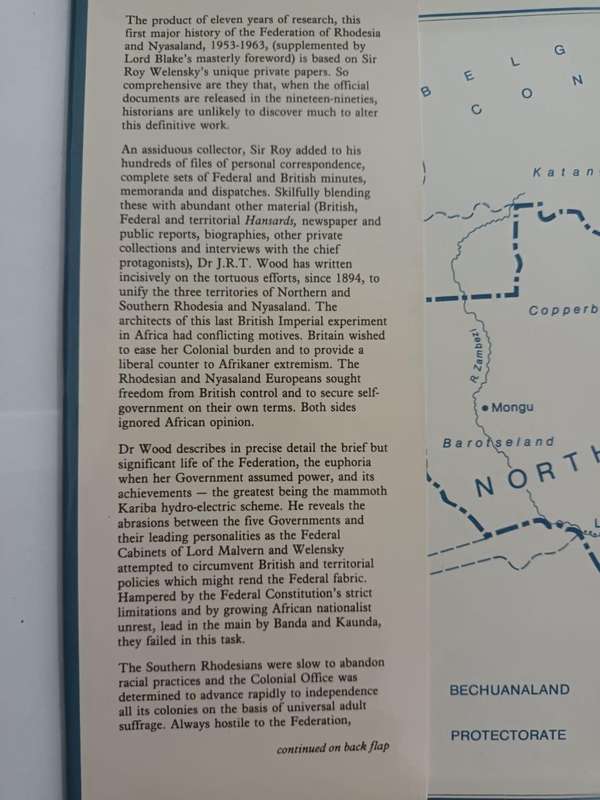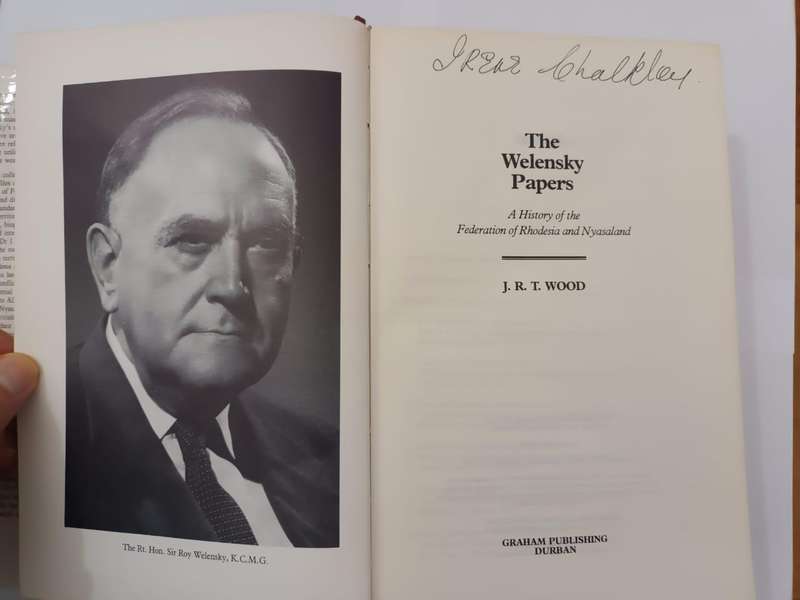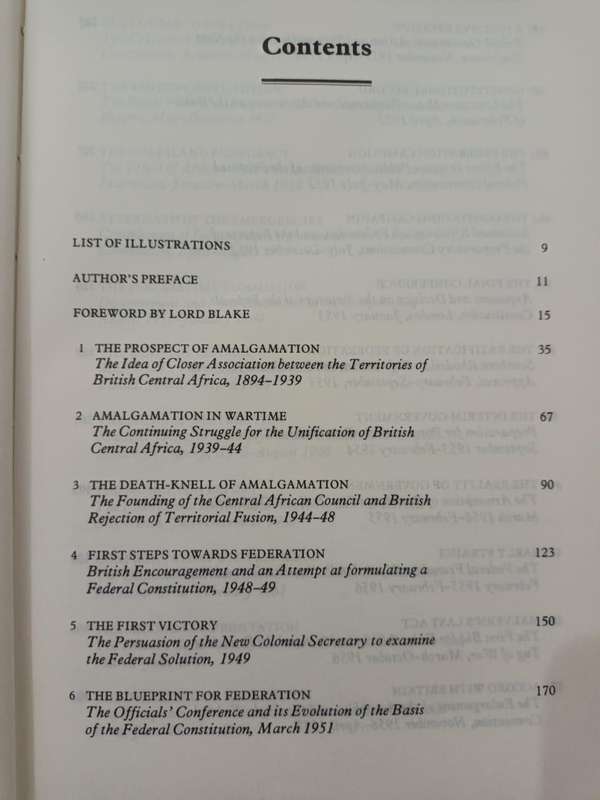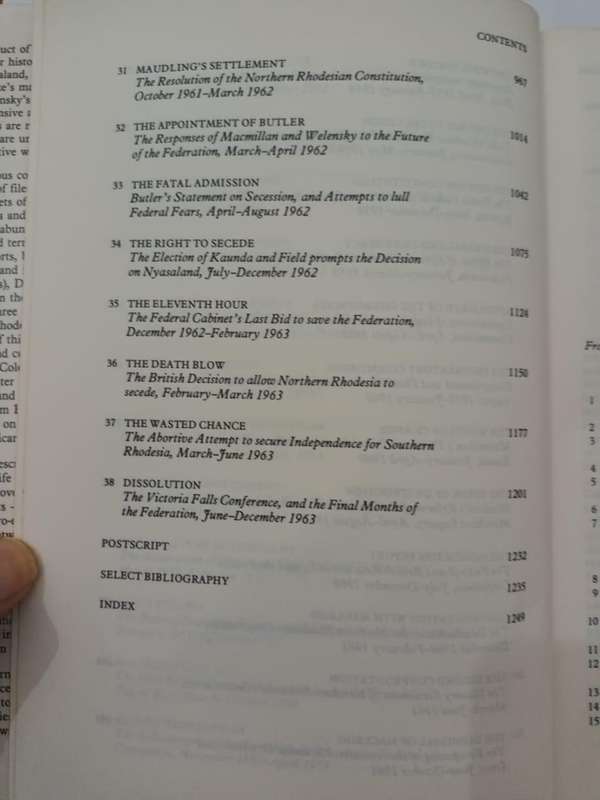

















The Welensky Papers: History of the Federation of Rhodesia and Nyasaland
Check my rate
| Main centres: | 1-3 business days |
| Regional areas: | 3-4 business days |
| Remote areas: | 3-5 business days |


















| Main centres: | 1-3 business days |
| Regional areas: | 3-4 business days |
| Remote areas: | 3-5 business days |
J. R. T. Wood, The Welensky Papers" A History of the Federation of Rhodesia and Nyasaland. Durban: Graham Publishing, 1983.
Hard cover, dustwrapper, 1330 pages, endpaper maps, plates.
Previous owner's name on the title-page, a little foxing on the endpaper and edges of the text-block. Very good condition.
The product of eleven years of research, this first major history of the Federation of Rhodesia and Nyasaland, 1953-1963, supplemented by Lord Blake's masterly foreword is based on Sir Roy Welensky's unique private papers. So comprehensive are they that, when the official documents are released in the nineteen-nineties, historians are unlikely to discover much to alter this definitive work.
An assiduous collector, Sir Roy added to his hundreds of files of personal correspondence, complete sets of federal and British minutes, memoranda and dspatches. Skilfully blending these with abundant other material British, federal and territorial Hansard's, newspaper and public reports, biographies, other private collections and interviews with the chief protagonists, Dr JRT Wood has written incisively on the tortuous efforts, since 1894, to unify the three territories of Northern and Southern Rhodesia and Nyasaland. The architects of this last British imperial experiment in Africa had conflicting motives. Britain wished to ease her colonial burden and to provide a liberal counter to Afrikaner extremism. The Rhodesian and Nyasaland Europeans sought freedom from British control and to secure self-government on their own terms. Both sides ignored African opinion.
Dr Wood describes in precise detail the brief but significant life of the Federation, the euphoria when her government assumed power, and its achievementsthe greatest being the mammoth Kariba hydroelectric scheme. He reveals the abrasions between the five governments and their leading personalities as the federal cabinets of Lord Melbourne and Welensky attempted to circumvent British and territorial policies which might rend the Federal fabric. Hampered by the Federal constitutions strict limitations and by growing African nationalist unrest, led in the main by Banda and Kaunda, they failed in this task.
The Southern Rhodesians were slow to abandon racial practises and the Colonial Office was determined to advance rapidly to independence all its colonies on the basis of universal adult suffrage. Always hostile to the federation, African nationalism flowered in the post-Suez climate. The inevitable result was Macmillan's concessions to Nyasaland and Northern Rhodesia of the right to succeed. The Federation could not endure. It could not control its fate because Whitehall retained ultimate constitutional power. Sensing the winds of change, Britain chose to disengage from Africa and to seek her destiny in Europe. In the bitter aftermath of the Federation's destruction, this decision drove the Southern Rhodesian Europeans towards their Unilateral Declaration of Independence in 1965.